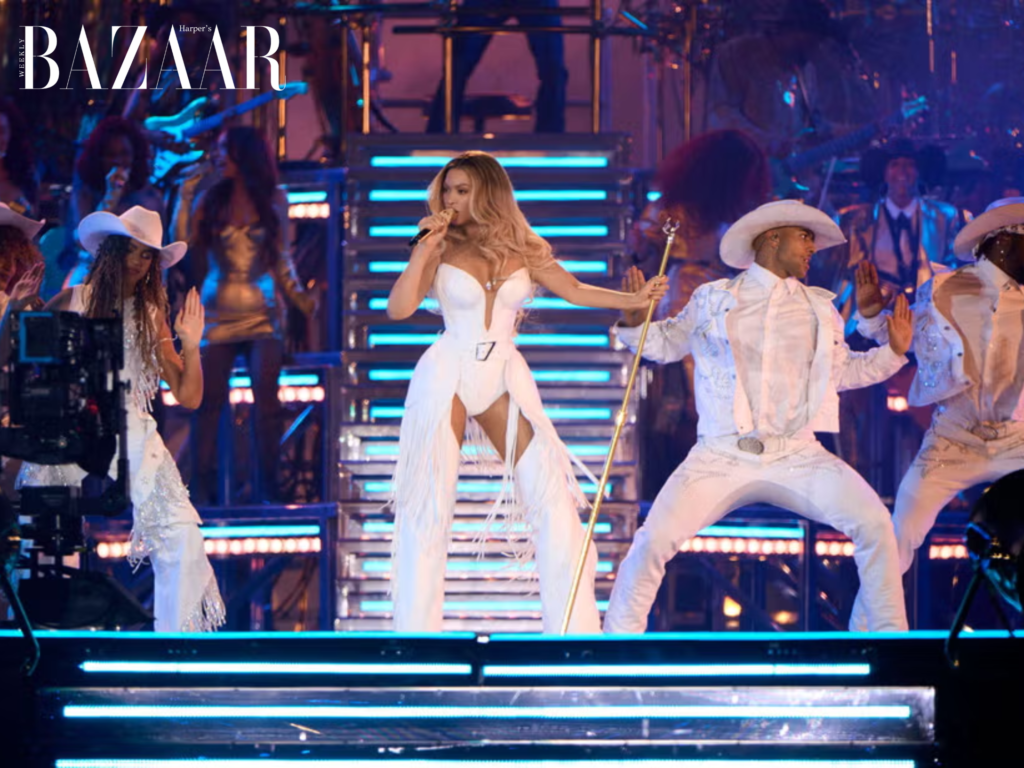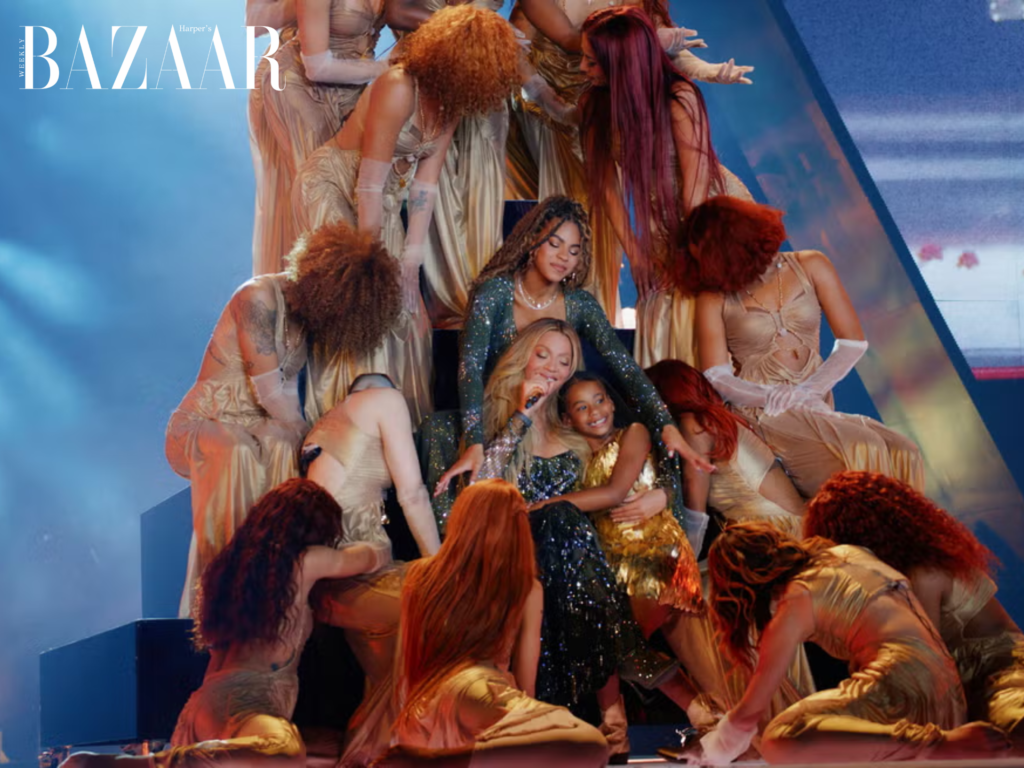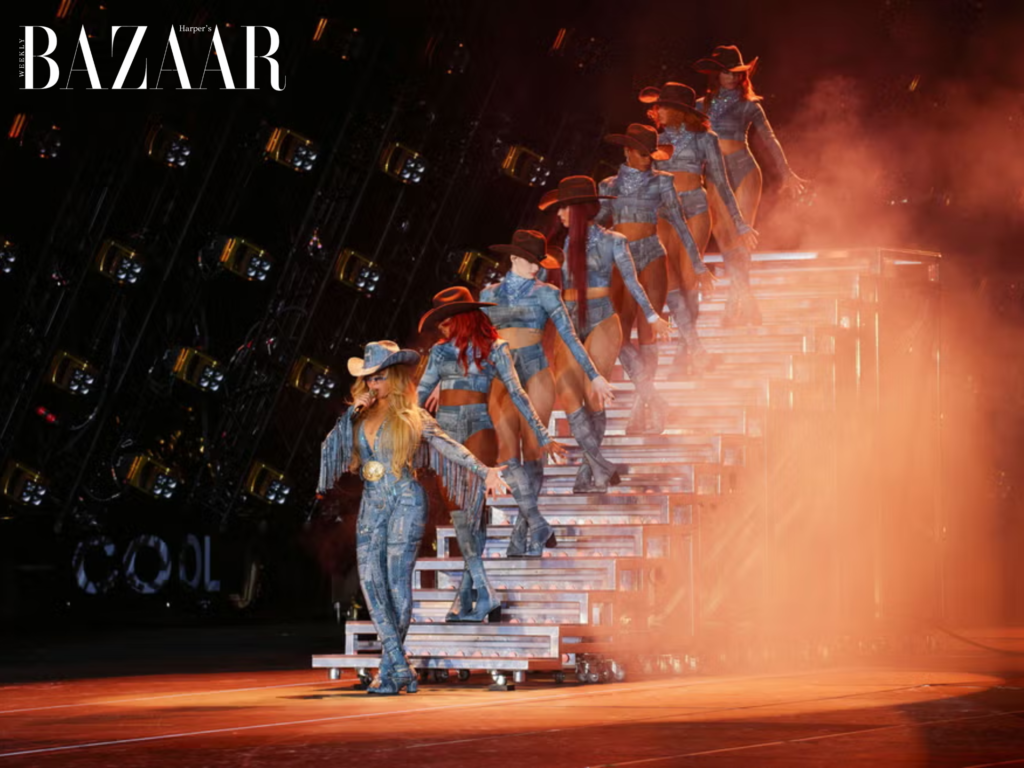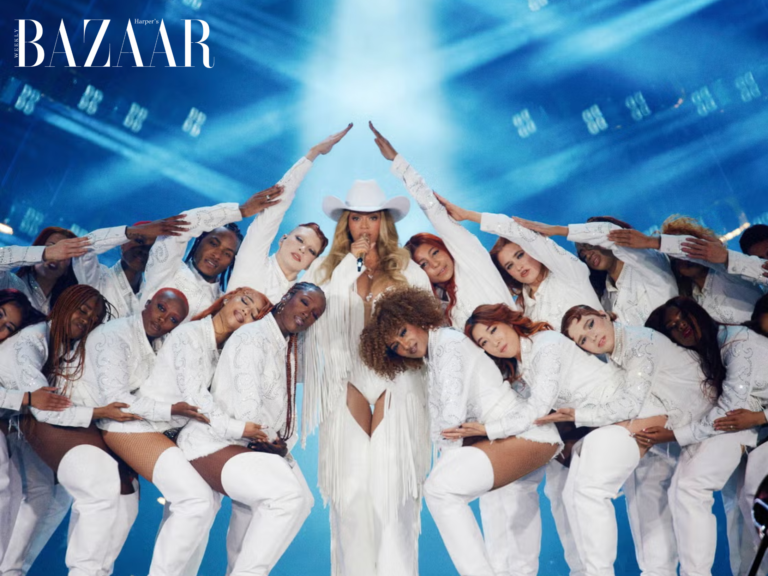When Beyoncé announced her Cowboy Carter album, fans knew they were in for a ride—but no one could’ve predicted just how bold, genre-bending, and unapologetically southern her latest chapter would be. The Cowboy Carter Tour is not just a musical experience—it’s a reclamation, a revolution, and a reinvention of what country music can be. Beyoncé isn’t playing by Nashville’s rules. She’s rewriting them entirely. With her signature blend of spectacle, soul, and sociopolitical savvy, she’s lassoed the hearts of audiences and critics alike. Here are the five biggest takeaways from a tour that’s redefining what it means to be a global music icon in cowboy boots
1. This Isn’t Country—It’s Beyoncé’s Version of It

From the moment the show opens with Beyoncé riding a holographic horse across a digital prairie, it’s clear she’s not here to simply dabble in country aesthetics—she’s here to transform them. The tour doesn’t just embrace traditional country tropes; it deconstructs and reassembles them into something entirely her own. She fuses honky-tonk vibes with Houston hip-hop, twang with trap, and gospel with outlaw country, creating a sound that’s expansive and entirely genre-defiant. This is country on Beyoncé’s terms, and in doing so, she opens the door for new stories, new voices, and long-overdue representation in a historically exclusive genre
2. A Cultural Reclamation in Rhinestones and Leather

The Cowboy Carter Tour isn’t just a sonic evolution—it’s a visual and cultural one, too. Every detail, from the choreography to the set design to the clothing, nods to Black cowboy history and the untold roots of country music in Black communities. Beyoncé pays tribute to unsung heroes through visuals projected behind her as she sings, showcasing historic Black rodeo riders and blues legends who paved the way. She’s not only reclaiming space for herself—she’s reclaiming space for an entire lineage of Black artistry that’s often been erased from the country narrative. In one particularly powerful moment, she sings “American Requiem” against the backdrop of a Black church congregation in full cowboy attire, turning the stage into a pulpit of resistance and remembrance
3. The Fashion Is Iconic and Revolutionary
As expected, Beyoncé brings the drama with every outfit change, but the Cowboy Carter wardrobe goes beyond spectacle—it tells a story. Think couture cowboy hats, crystal fringe chaps, latex corsets paired with prairie skirts, and boots that look like they were blessed by the fashion gods of the Wild West. Beyoncé collaborates with Black and Indigenous designers to infuse authenticity and ancestral pride into her looks, proving once again that style and substance are not mutually exclusive. The fashion serves as a visual metaphor for the show itself: rooted in tradition, but remixed for the future
4. Beyoncé the Storyteller Is Front and Center

While Beyoncé is known for her vocal prowess and stage command, this tour spotlights her storytelling in a way fans haven’t seen since Lemonade. Each section of the show is crafted like an act in a larger narrative, complete with spoken-word interludes and acoustic storytelling moments that ground the spectacle in deeply personal reflection. She sings about legacy, motherhood, resilience, and joy with a new kind of emotional intimacy. In an unexpected mid-set moment, she brings out her daughter Rumi for a duet on “Protector,” drawing a standing ovation and tears from fans. These moments strip away the myth and bring us closer to the woman behind the icon, without ever dimming her power
5. A Genre-Breaking Future for Music Festivals and Tours
The Cowboy Carter Tour isn’t just changing expectations for Beyoncé—it’s shifting the entire landscape of live performance. This is a tour that blurs the lines between genres, geography, and generations. She invites country fans, pop fans, and hip-hop heads into the same arena and gives them all something to scream about. It’s inclusive without diluting, bold without alienating. In a world where music is more segmented than ever, Beyoncé’s vision feels unifying—and deeply necessary. Her setlists include Dolly Parton tributes, duets with emerging Black country artists, and reimagined classics like “Texas Hold ’Em” that feel equally at home on a honky-tonk jukebox or a pop chart
More than a tour, Cowboy Carter is a cultural thesis delivered in neon, glitter, and gut-punch vocals. Beyoncé is expanding the idea of who belongs in country music—and who gets to define American music at large. She’s kicking down doors and waving the fringed flag of reinvention, all while looking like the most glamorous outlaw to ever grace a stadium stage
This isn’t just Beyoncé’s country era. This is country’s Beyoncé era. And after Cowboy Carter, nothing in the genre—or the industry—will ever be the same.

